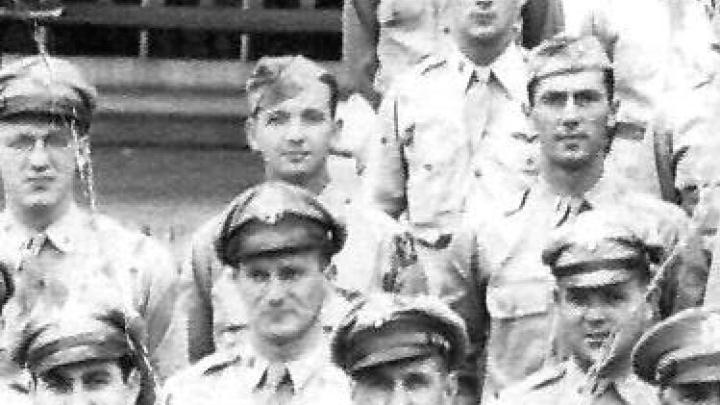Commander John R. H. Callaway of the United States Navy, M.P.A. ’07, has sent Primus the following dispatch: “When I was growing up during the late 1970s and early 1980s, my [maternal] grandfather proudly claimed to be a ‘Harvard man,’ usually during late-evening conversations when someone questioned the veracity of a particular assertion of his. It always seemed an odd claim because I knew him to be a graduate of Penn State with a master’s degree from Syracuse and a high school math teacher for many years, but we never called him on it out of deference. As we grew older, I heard the occasional story about statistics classes at Harvard but nothing more. Aside from his academic pedigree, we also knew he was a World War II veteran who served as an instructor pilot in the Army Air Corps. The connection between his military service and the statistics classes was never made.
“In 2006, I began my second semester at the Kennedy School,” continues Callaway, “and was fortunate enough to take Professor Joseph Nye’s course, ‘Leadership and Ethics in Foreign Policy.’ During the course, we watched Errol Morris’s film Fog of War: Eleven Lessons from the Life of Robert S. McNamara. In it, McNamara reflects on his tenure at Harvard Business School and his efforts during World War II to increase the efficiency of aerial bombing through applied statistics. To expand the practice, McNamara created the Office of Statistical Control for the Army Air Corps at Harvard Business School, teaching statistics to young Army officers. Armed with this potential connection, I inquired further with my grandfather and was rewarded when my grandmother produced a photograph of the 353rd Army Air Force Base Unit (Statistical School) with my grandfather in the third row.
“He passed away in January 2011, and we went through his effects when my grandmother relocated to the Boston area from our native Binghamton, New York,” Callaway reports. “While going through his military papers, we found the certificate awarded by the Graduate School of Business Administration for the Air Forces Statistical School, complete with the familiar Veritas seal, as well as form letters from President Harry S Truman and General Henry ‘Hap’ Arnold, and other documentation of his service tucked into his Air Corps Pilot’s Navigation Kit. He was low key about his service, as was typical of his generation. I feel fortunate that the certificate and other papers were not inadvertently lost and that although he has passed on we know for sure he really was a ‘Harvard man.’”
Yesterday’s mail: The book The Breathless Present: A Memoir in Four Movements is a 2011 memoir by Carl Vigeland ’69, a writer who lives in Amherst, Massachusetts, and teaches writing part time at the University of Massachusetts there. He has written seven books, one with Wynton Marsalis about jazz, another on Mozart.
The memoir includes a passage about the young Vigeland’s attempts, while living in Conway, Massachusetts, in the 1970s, to get advice on his writing from a fellow Conway resident, Archibald MacLeish, LL.B. ’19, Litt.D. ’55—poet, writer, author of the play J.B., librarian of Congress, and former Boylston professor of rhetoric and oratory, who died in 1982, aged 89. There are several direct quotes from his letters to Vigeland, bestowing his advice on writing. Here is an excerpt from Vigeland concerning the post office, which suggests that what the Postal Service needs today is bushels of big-snail-mail citizens like Archibald MacLeish.
“It was on a hike with our landlord’s wife that I learned that the poet Archibald MacLeish was our immediate neighbor. He lived on an estate at the top of the hill, above the pastures and beyond two ponds in the woods that were bordered on our farm’s side by an abandoned apple orchard. I had spotted him a few times in town, usually at the post office, where he pulled up in his black Mercedes, wearing a white tee shirt, carpenter’s overalls, and a straw hat, and retrieved an entire bushel basket of mail that the postmaster, Syd St. Peters, had been holding for him.”








